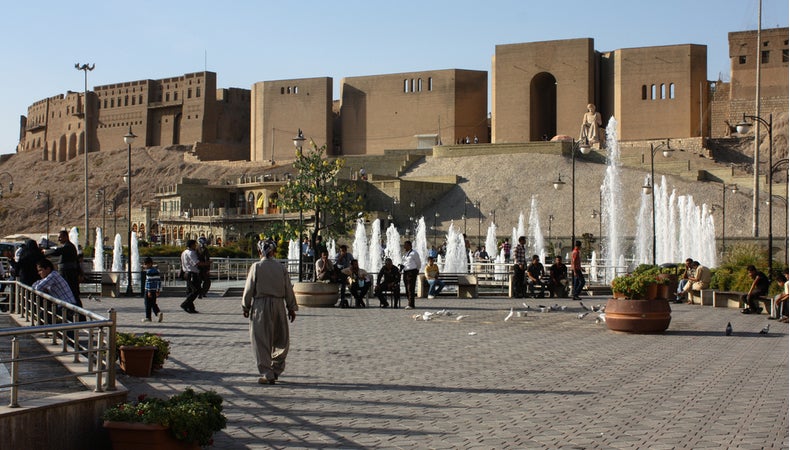“We ask to adhere to the Abraham Agreements.” A year after the establishment of diplomatic relations between Israel and other Arab countries, a significant voice in support of normalization with the Jewish state arrived on Friday from Iraq. In an unprecedented event, 312 Iraqi, Sunni, and Shia leaders gathered in Erbil, in the autonomous region of Iraqi Kurdistan, calling for the establishment of full diplomatic relations with the State of Israel.
A new policy of normalization based on the relations between people, in the words of Wisam al-Hardan, leader of the Iraqi movement Sahwa, belonging to the influential tribe of the Dulaim, which in 2005 led the Sunni tribal forces aligned with Washington in the fight against Al Qaeda. Al-Hardan had also publicly expressed these positions in an editorial published Friday by the Wall Street Journal, on behalf of “an assembly of Sunnis and Shiites, of members of the Sunni ‘Awakening’ movement, as well as intellectuals, tribal leaders and young activists of the protests born in 2019.
The conference saw the extraordinary participation of Sahar Karim al-Tai, director of the research department of the Ministry of Culture of the government of Baghdad. “Israel today is a strong country and an inseparable part of the world and the United Nations. Iraq cannot overlook this fact and live-in isolation,” she told al-Tai participants.
“We can live under repression or die with courage,” she continued, in words that sounded like a warning about possible retaliation for public expression of closeness to Israel, punishable under Iraqi law. In fact, the condemnation reactions were not long in coming, which soon turned into concrete actions against Hardan and Ta’i – dismissed yesterday from her post: against the two characters, although both belonging to powerful families of Arab dignitaries, were arrest orders issued. Police authorities in Baghdad said further arrests will be made as soon as “all participants are recognized”.
“The concept of normalization is constitutionally, legally, and politically rejected by the Iraqi state,” reads a note issued Saturday by the office of the Iraqi prime minister. “The government has clearly expressed Iraq’s historic stance in support of the Palestinian just cause, which has the right to an independent state with Jerusalem as its capital.” The Iraqi president called the event “illegal”.
The video of the conference – organized with the patronage of the Center for Peace Communication based in New York, active for years in bringing together politicians and activists in Israel and in Arab countries – was first made public on the net and was canceled shortly after. “The statements in favor of normalization with Israel did not surprise me,” Linda Abdul Aziz Menuhin, an Israeli columnist who fled from Baghdad in 1971 told Repubblica, spoke in an online session on Friday.
“Shadow in Baghdad”, a 2013 documentary that records his epic and that of tens of thousands of Iraqi Jews who have fled Iraq en masse since the 1940s, has met with great success among Iraqis, and Menuhin maintains personal relationships with many former compatriots who have contacted her over the years. “Iraqis remember very well the 2,600 years of Jewish presence in their land and many have expressed their willingness to establish relations with Israel. What amazed me about the conference is that these brave people exposed themselves openly – continues Menuhin. Now we don’t know what will happen, there will probably be a turnaround due to the threats. It is always like this: one step forward and ten back, it is a vicious circle from which we hope one day to be able to get out.” Jacky Hugi, the journalist of Israeli radio Galei Tzahal, who also took part in the virtual panel, links the initiative to the upcoming parliamentary elections scheduled for October 10.


